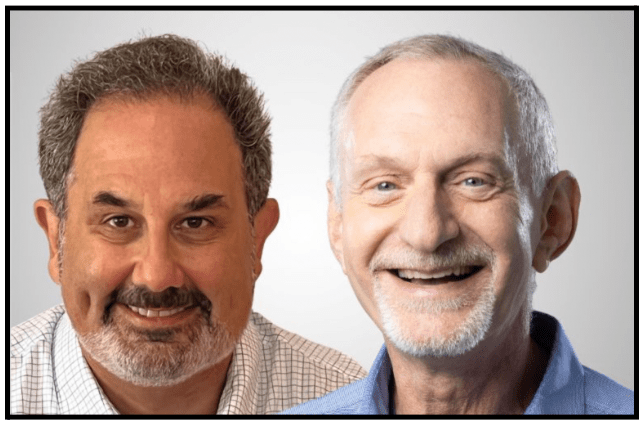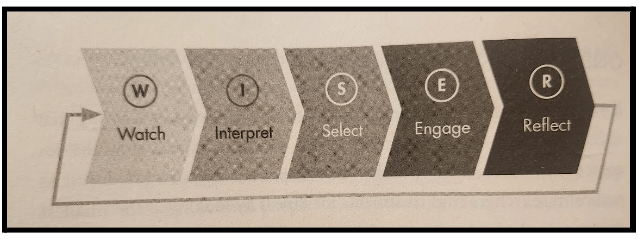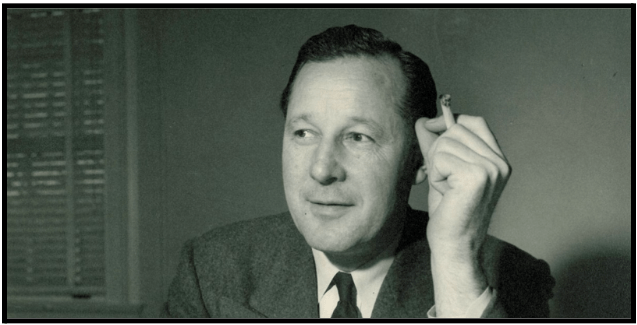Talking Big Ideas.
“You can’t stop the waves. But you can learn to surf.”
~ John Kabat-Zinn
“If you had to make one life choice, right now, to set yourself on the path to future health and happiness, what would it be?”
This is the question that begins The Good Life, a new book that has generated much buzz since being published in January. You’ve likely read a review already or come across some of its insights.
I’m going to discuss a method the authors suggest that I haven’t seen anywhere else. To put it in context I’ll first give a quick overview of the book.
In 1938, Harvard University started a study that continues to this day. It’s the world’s longest scientific exploration into happiness – 85 years and going strong. Originally focused on select Harvard undergraduates, including John F. Kennedy, the study expanded to add underprivileged Bostonians. And then more students, eventually all the spouses of participants, their children, and now grandchildren.

Unlike most studies this one is prospective, meaning it looks at life in the present moment rather than life as people remember it. Prospective studies are much harder to pull off and incredibly valuable.
Participants in the Harvard study fill out detailed questionnaires and provide health records throughout their lives. Blood is donated, along with DNA, fMRI and EKG scans. 25 actual brains have been contributed.
Other similar studies now exist around the world and the data is being shared and synthesized. The result is an unprecedented scientific look into what the authors call “The human condition . . . the universal experience of being alive.”
All the research points to one clear answer to the opening question. The key to a life of health and happiness has little to do with fortune or fame. Many of the richest and most iconic people were sick and miserable, while some of the poorest flourished.
The key to the good life is simple: other people. Specifically, meaningful connections with them:
The most important thing we’ve learned: Positive relationships are essential to human well being. . . . The engine of the good life is not the self but our connection to others.
The data is overwhelming. The more we invest in our relationships, the more returns we get throughout our lives. Socially connected people are less likely to die at any age. 50-year-olds who were happiest in their relationships ended up the healthiest (mentally and physically) at 80.
Which relationships are worth cultivating? All of them. From your life partner and immediate family all the way to the cashier at the grocery store. The better your relationships with everyone around you, the better your life will likely be.
The authors use the term social fitness because building quality relationships is like building muscles. Without regular exercise, atrophy is inevitable.
Social fitness ranks in importance with sleep, diet, and exercise. And it isn’t easy – building relationships is tough, especially since so many people can upset us!
The authors blend modern science with ancient wisdom to explain how we can learn to gain control over the emotions that keep us from building social fitness. Elite athletes learn to use their thoughts to control their emotions. Therapists teach patients mental exercises to help alleviate depression, anxiety, and aggression.
“What we are today comes from our thoughts of yesterday, and our present thoughts build our life of tomorrow. Our life is the creation of our mind.”
~ Buddha
We too can use our minds to control our emotions. We can improve our social fitness to enhance our relationships, and in doing so, build a better life.
The philosopher Epictetus, born a slave, taught that “happiness and freedom begin with a clear understanding of one principle: Some things are within your control, and some things are not.”
We cannot control how other people behave. We can control how we behave, and how we engage with other people.
CONTROL EMOTIONS → SOCIAL FITNESS → GOOD LIFE
Almost everyone we meet has the potential to upset us – or make our lives richer. The choice is ours.
Of course, most people aren’t going to be as warm and welcoming as, say, Mr. Rogers. How do we ensure that the challenging people in our lives don’t throw us off track? How can we still forge positive relationships with them?
The Good Life gives us the answer. They call it WISER Model.

The WISER Model shows us that we have a surprising amount of control over our lives. The key is to occasionally “examine our emotional experience at a more microscopic level.” We can use the model anytime we wish, in any difficult emotional situation, from challenging relationships to stubbing our toe to getting cancer.
The idea is to slow down our reactions so we can pay attention and guide them in a useful way.
As an illustration, imagine your boss comes into your office and unexpectedly yells at you. He says your performance is lagging and you have one month to step up your game or he’ll put you “on notice.” You don’t know what this means, but you know it isn’t good.
#1: Watch
“What happened?”
There’s a famous saying in psychiatry, “don’t just do something, sit there.”
Instead of reacting in a brash way to the incident, the WISER model counsels you to pause and broaden your perspective. Look at the big picture: the environment, your boss, you, and the context connecting all three. What do you see? What are you likely missing?
Is your company struggling is some way? Is your boss is under pressure to show results? Is his marriage strained, or his daughter sick? And did you really put in 100 percent this past month, or have you been slipping in the back door late and dialing it in on your TPS reports?
Watching in this way is not to excuse poor behavior, it is simply to observe what happened and identify possible causes.
Watch yourself as well. How did your body respond? Your muscles, your heart, your breath? What emotions are you experiencing? Where is your mind wandering?
#2. Interpret
“Why did it happen?”
Our default is to be quite biased in our favor.
Interpreting events with maturity means doing our best to analyze things objectively – and acknowledge that we are not the center of the universe. Instead of jumping to conclusions that benefit us, we expand beyond our immediate “blink” reactions.
What assumptions are you making? Is your boss really out to get you, or has he been giving you slack for awhile and now he’s in the hot seat over it? Is it possible that he feels like you’ve taken advantage of him?
What might you be overlooking?
#3. Select
“What do I want to accomplish?”
Daniel Kahneman explains in Thinking, Fast and Slow that the majority of our thinking is quick and intuitive. This “System 1” processing is essential for most daily decisions.
But when you’re filled with negative emotions, System 1 thinking can get you in trouble. If you decide pick a fight with your boss, badmouth him to colleagues, or impulsively quit, it will likely cause more harm than good.
Occasionally we need to slow down and be deliberate. To analyze and give our full attention. This resource-intensive “System 2” thinking helps remove the biases and noise from System 1.
Ask yourself what do you honestly want to accomplish? What strengths do you have to help you? What weaknesses could hurt your efforts?
Is there a way to smooth things over with your boss? To perhaps step up your game at work? To use this as an opportunity to grow?
#4. Engage
“What’s my best path forward?”
Do you have a mentor at work or elsewhere you can turn to for guidance? Someone you trust to give you honest feedback? (You can always use ChatGPT.) Together apply your System 2 thinking to help determine your best path forward.
Perhaps you can ask your boss to grab a coffee or lunch the next day. You can apply Rapaport’s Rules during conversation, restating as best you can his position. And asking polite clarifying questions to genuinely understand his perspective. Let him know everything from his position you agree with.
He may end up apologizing for his behavior. Regardless, you may politely ask him for his advice on how to move forward, and let him know your perspective based on your System 2 analysis.
You’re relationship may go back to normal, be slightly strained, or potentially end up more connected than before the incident.
“Ananda, one of the Buddha’s disciples, said to the Buddha one day, ‘I’ve realized that half of the path to the holy life is made of good friendships.’ ‘No, Ananda,’ the Buddha said. ‘Friends are not half of the holy life. They are all of the holy life.’”
~ Upaddha Sutta
#5. Reflect
“How can I do a little bit better next time?”
Take a moment afterwards to give yourself an honest assessment. How did it go? What did you do well, and what could you have done better? What are your lessons learned for next time?
This may only take a moment yet can yield tremendous results. As Dan Pink says in The Power of Regret, looking backward is vital to moving forward. Capture and apply your lessons learned. Over time these little improvements compound.
“It’s not 10,000 hours, it’s 10,000 iterations.”
~ Naval Ravikant
Our relationships matter. The more attention and care we bring to them, the more they’re likely to grow. These relationships extend beyond people. As Jon Haidt writes in The Happiness Hypothesis:
Happiness comes from between . . . it is worth striving to get the right relationships between yourself and others, between yourself and your work, and between yourself and something larger than yourself. If you get these relationships right, a sense of purpose and meaning will emerge.




